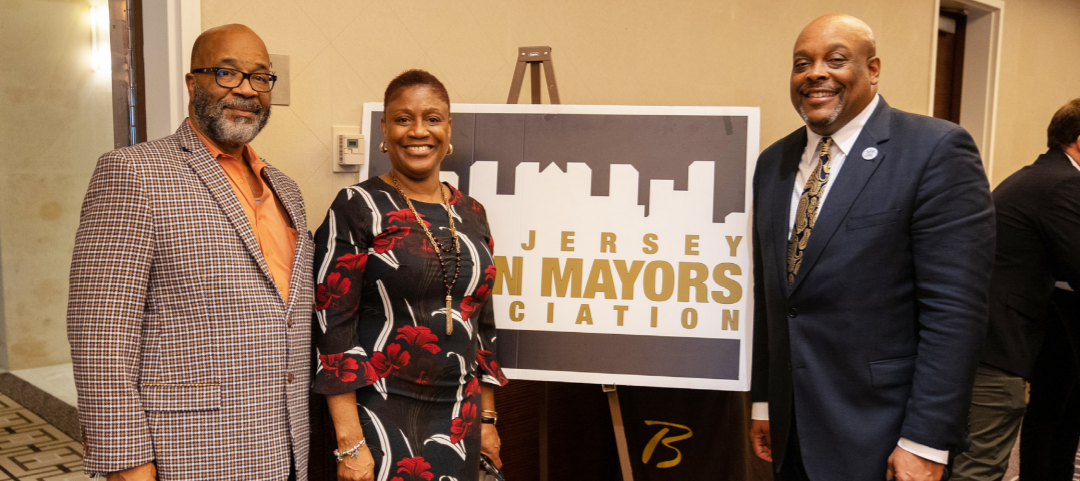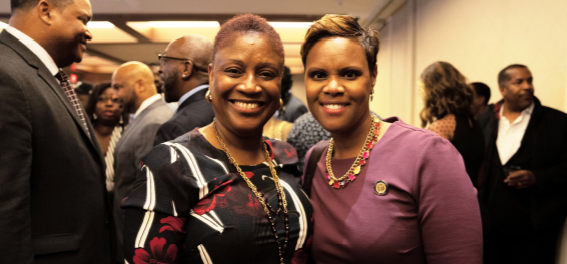Written by: Karl Weiskopf, Director of Policy and Research, John S. Watson Institute for Urban Policy and Research at Kean University

From High Point to Cape May, municipalities serve residents, safeguard taxpayers’ dollars, and undertake strategic planning to bridge the gap between theory and practice daily for the benefit of all. This is an objective toward which the John S. Watson Institute for Urban Policy and Research at Kean University also continues to strive. Having transitioned to Kean, the Institute is poised to augment its history as a resource that has transcended partisan and political shifts to elevate cross-disciplinary, urban-focused policy research, service learning, and civic engagement on issues relevant to cities in New Jersey and around the world for over 30 years.
Kean’s recent designation as New Jersey’s public urban research university offers new opportunities for the Institute. “As New Jersey’s premier urban research university, Kean is
positioned as a statewide urban anchor institution,” said Kean President Lamont O. Repollet, Ed.D. “That enables the Institute to lead the charge in uncovering practical, scalable, and sustainable solutions to our state’s most pressing social, civic, and economic challenges.”

A thought pioneer
Organized in an integrated, evolutionary framework of policy centers, the Institute uses a ‘linking people to policy’ approach to advance policy, research, and environmental change for underserved communities and communities of color. The Institute is recognized as a highly respected, visible, and statewide thought-pioneer that has strengthened leadership
in all sectors. It has informed policy- and decision-making on urban issues ranging from school funding, prison reform, and reentry and housing affordability, among others, and is frequently called upon by elected officials and business leaders to address such issues.
Through innovative initiatives in areas, including cultural competency in early childhood programs, urban agriculture, obesity reduction, and maternal-child health, the Institute has broadened the range of perspectives, voices, and indigenous knowledge in the policymaking process to explore new policy and practice paradigms. Through established, sustained, and mutually beneficial synergies with the greater Trenton region and other regions across the state, the Institute has employed community engagement and capacity.
Institute at work
The Institute has committed itself to the City of Trenton since its inception. Following the 1991 renaming of the Trenton Office of Policy Studies after the venerable Assemblyman John S. Watson, the first Black state legislator to chair an appropriations committee in the nation, the Institute supported Douglas H. Palmer, Trenton’s first Black mayor and inaugural president of the New Jersey Urban Mayors Association (NJUMA), with best practices in municipal leadership and public policy until 2001. “For more than three decades, I can’t
think of any governors, urban legislators, or policymakers, nor any major urban policies in New Jersey that have not been counseled, advised, or shaped by the Institute in the interest of urban cities and residents,” Mayor Palmer said.
Today, the Institute supports over 32 municipalities under the NJUMA banner, whose current president is Ras Baraka, mayor of the state’s largest city, Newark. The Institute has led the way on the most pressing policy issues over three decades. Ana I. Berdecía, founding director of the Center for the Positive Development of Urban Children at the Institute, has promoted nurturing well-trained preschool teachers, high-quality childcare programs, and culturally competent, linguistically sensitive K-12 classrooms. After Abbott decisions affecting preschool teachers and providers, Berdecía ensured that experienced teachers and teachers of color stayed in classrooms and childcare centers statewide. Broadly, the Institute is the only policy organization in New Jersey to convene mayors, school boards, and superintendents around the implementation of Abbott decisions.

This year, the Institute hosted a virtual policy retreat, which brought together members of the Legislative Black Caucus, Legislative Latino Caucus, and NJUMA for the first time to facilitate the intentional delineation, analysis, and preparation for action on the policy priorities of all three groups. These milestones represent only a portion of the activities upon which the Watson Institute has embarked since it was founded.
“In its early years, and in partnership with (Retired NJLM Executive Director) Bill Dressell and NJLM, many of the distinctive, impact-oriented initiatives in which the Institute engaged–ranging from our focus on Abbott implementation to the establishment of the only
entity nationwide dedicated to servicing mayors of urban communities–were the first of their kind,” said Joseph Youngblood II, Ph.D, J.D., former executive director of the Institute and senior vice president for transformational learning and external affairs at Kean.
Realizing a vision
William Watson, the first executive director of the Institute, in June 2022 reflected on the legacy of his father, Assemblyman John S. Watson.
“For him, it was never about standing behind the microphone; it was not about getting his picture taken. Everything had to be focused on what we would do as a society to make people’s lives better,” he said. “Everything he did as a freeholder and as a member of the General Assembly gave him the ability to put in place legislation that directly impacted people that had the greatest need.”
Policy change for those most in need of help remains the lodestar around which the Watson Institute orients every initiative in which it is engaged. Through its new affiliation with Kean, the Institute will continue to realize Assemblyman Watson’s vision as it charts a new course towards a modern, equitable people-centered policy paradigm for the benefit of all.
Linking people to policy
In 2015, the Institute developed the first Comprehensive Economic Development Strategy (CEDS) dedicated to improving urban communities, which required managing a steering committee of 200 multi-sector stakeholders, task forces, and 20 urban municipalities in
the northeast region of the state to complete a long-term planning effort to find solutions for common economic- and community-development obstacles, with the primary goal of utilizing existing community assets.
“We have never undertaken any research project, activity or initiative whose implications were purely theoretical,” said Barbara George Johnson, J.D., vice president for external affairs and urban policy at Kean. “If we are to truly ‘move the needle,’ we must continue to
center the ‘linking people to policy’ approach that drives everything we do, and our integration into the Kean ecosystem will catalyze our endeavors to effectuate positive change for people in urban communities and statewide.”
Nicky Sheats, Ph.D., J.D., director of the Center for the Urban Environment (CUE) at the Institute, was instrumental in providing leadership, technical and educational support that culminated in New Jersey’s landmark cumulative impacts legislation passed in 2020, which
mandates the application of evaluative mechanisms grounded in environmental justice principles before undertaking projects that would pollute historically overburdened communities. Sheats thereafter began leading efforts to scale the legislation for introduction in Congress.
Crucially, the Institute served as a conduit between the governor’s office and NJUMA members to maximize efforts to respond to and recover from the catastrophic effects of the COVID-19 pandemic on urban communities and statewide. Currently, in collaboration with the NJ Economic Development Authority (NJEDA), it is assessing factors contributing to infant mortality among women of color, predominantly Black and Latina women, and identifying approaches and services to inform the establishment of a comprehensive maternal-infant health center in Trenton.




